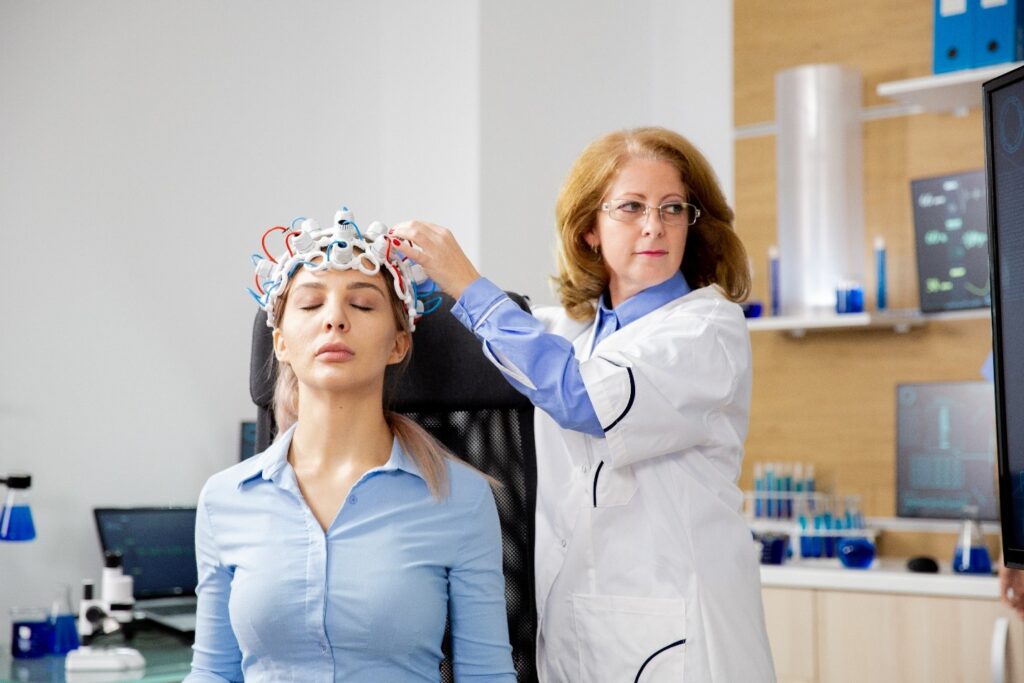The Role of Technology in Enhancing TMS Safety

Transcranial magnetic stimulation (TMS) has emerged as an effective treatment for various neurological and psychiatric disorders, and it is a light of hope for many lives who have not found any relief using traditional or common therapies. TMS uses magnetic pulses to stimulate different brain areas, fostering positive behavioral changes. In any medical treatment, safety is paramount for every patient, and this technological era has made TMS a well-tolerated option for many people. If you are interested in learning more about TMS Safety & TMS Treatment Centers, you are at a perfect place. Let’s explore TMS Safety in detail right away.
TMS Safety Advancements:
Technology is playing a critical role in the medical and treatment of serious illnesses, and TMS is one of these. The TMS process uses electromagnetic coils near the scalp to generate magnetic pulses that stimulate nerve cells in the brain. TMS is generally safe and tolerable, with minor side effects like mild scalp discomfort and lightheadedness being easily managed.
Thanks to the latest technology, TMS treatment centers now employ the latest advancements to enhance precision, patient well-being, and safety. Some modern advancements in TMS safety include:
Advanced Software’s for Targeted Stimulation
One of the major successes at TMS Treatment Centers is the addition of 3D brain models and mapping using some software that can easily specify areas for stimulation & in this way, practitioners have real-time data to identify the exact spot for stimulation. Real-time monitoring results in minimizing potential mental health risks, and increases the overall TMS safety efficiency by not targeting the unintended areas, and it results in productive outcomes for the patient.
Advanced TMS Coil Design:
Coil Design is a vital area of TMS safety development, with the availability of various coil designs, it has become easy to target the specific brain regions more precisely and reduce the potential risks. There is ongoing research into advanced coil designs to reach deeper brain areas more precisely.
Researchers are exploring many novel coil designs, including H-Coils, to address the inefficient penetration of the skull by the standard coil. These coils deliver very targeted magnetic stimulation to the deeper regions of the brain while ensuring safety.
Standardized Protocols:
Regulatory bodies and professional organizations play a vital role in ensuring the safe implementation of TMS technology. They establish guidelines and standards for equipment safety, treatment protocols, and practitioner qualifications. To ensure TMS safety, TMS treatment centers are continuously improving their protocols using their past experiences. The fetched data helps practitioners to plan new therapies to assist people in the best way.
Standardized protocols ensure consistent and safe application of TMS across many treatment centers, thereby enhancing overall patient satisfaction.
Integration of AI in TMS Safety:
Artificial Intelligence is making big leaps in every field, and its wonders are spreading the light of hope in TMS Safety as well. With AI predictive analytics, AI algorithms can quickly review the vast amount of data like treatment procedures, patient demographics & treatment protocols, and even historical safety incidents that can contribute significantly. By identifying patterns in the provided data, AI can effortlessly predict potential risks for specific patients or treatment protocols. By this way, healthcare professionals can easily adjust the treatment plans to avoid potential risks.
AI can be integrated into the real-time monitoring in order to note brain activity and other psychological activities timely. With AI, irreplaceable human experience in the form of trained practitioners is and will always be needed.
The Future of TMS Safety:
The future of TMS safety appears promising, especially with the advent of the latest technological advancements. We can expect remarkable developments in the medical field. However, human experience will continue to be crucial.
In the upcoming years, we may witness closed-loop TMS systems that may keenly adjust stimulation parameters. AI seems promising for TMS safety, and in the future, TMS treatment centers will be utilizing these advancements for risk prediction, real-time monitoring, and tailored treatment approaches as per the patient’s needs.
Explore TMS treatment today to discover how these innovations are transforming lives !

